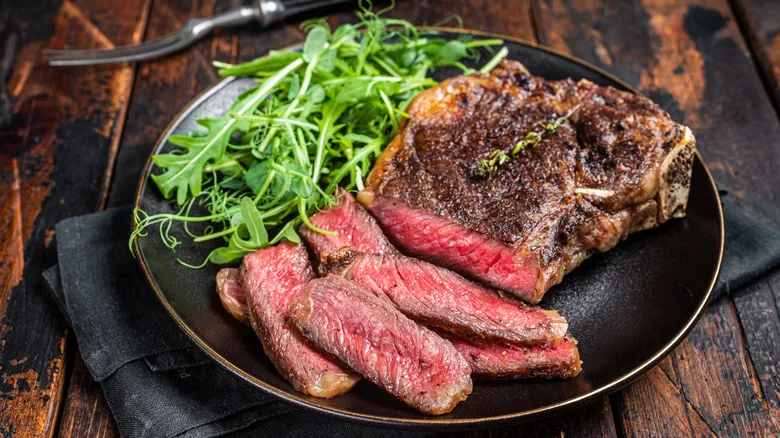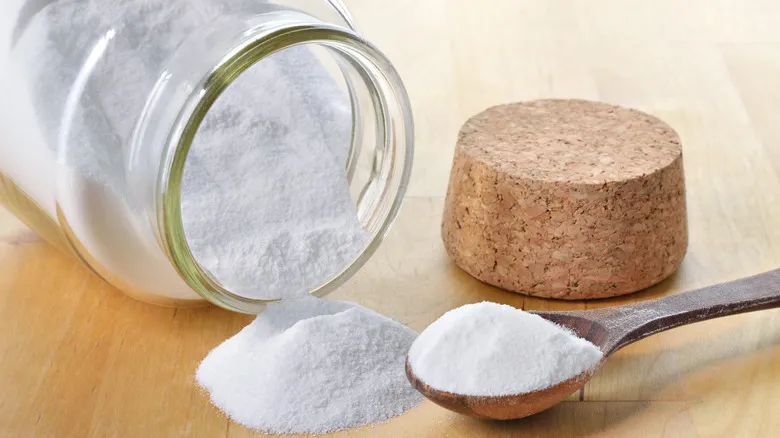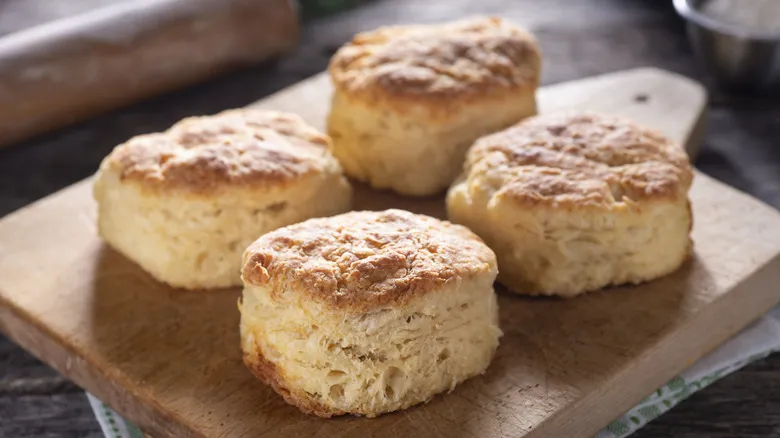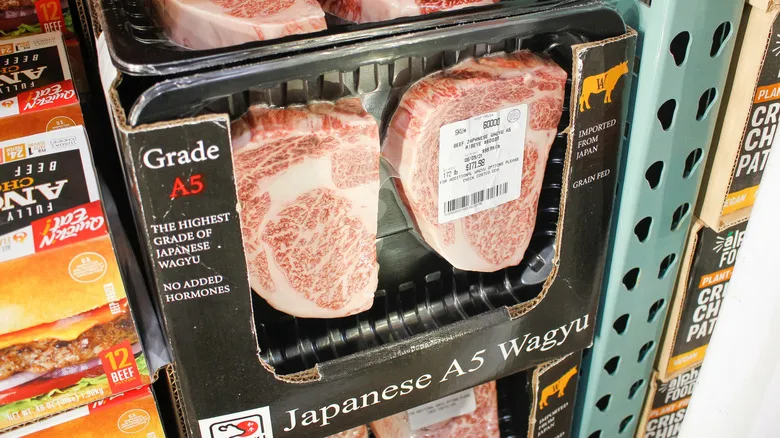Don't overlook American Wagyu

While Japanese Wagyu is often the most coveted, it can be quite pricey, even at retailers like Costco. Thankfully, there are alternatives, such as American Wagyu, which, according to the American Wagyu Association, comes from cattle that are descendants of a few animals imported from Japan in the 1990s. Some farms have successfully raised full-blooded Wagyu cattle in the U.S., while others have developed crossbreeds. Although these crossbred cattle do not meet Japanese standards for authentic Wagyu, they may be preferred by some diners. In an interview with The Food Institute, Nick Fiorentino, owner of The Meatery—a butcher shop certified by the Kobe Beef Association—mentioned that Japanese Wagyu can be too rich for some people, leading him to recommend American or Australian crossbred options instead.
Moreover, Japanese Wagyu steaks are typically sliced much thinner than their American counterparts, as the meat's richness doesn't suit the traditional steak-eating experience. If you attempted to serve it as part of a classic steak and potato meal, you might quickly feel overwhelmed.
While American Wagyu may not possess the same melt-in-your-mouth texture as genuine Japanese beef—primarily due to less marbling—it is more affordable and still offers exceptional quality. If you're eager to try Wagyu without spending a fortune, exploring American Wagyu is definitely a worthwhile option.
Recommended

The Only Ratio You Need To Substitute Baking Soda And Baking Powder

The Secret To Taller Biscuits? Overcrowd Them In The Pan

Whip Baileys Into Store-Bought Icing For A Fluffy, Boozy Twist

The Butter Substitute To Crisp Up Your Cookies
Next up

